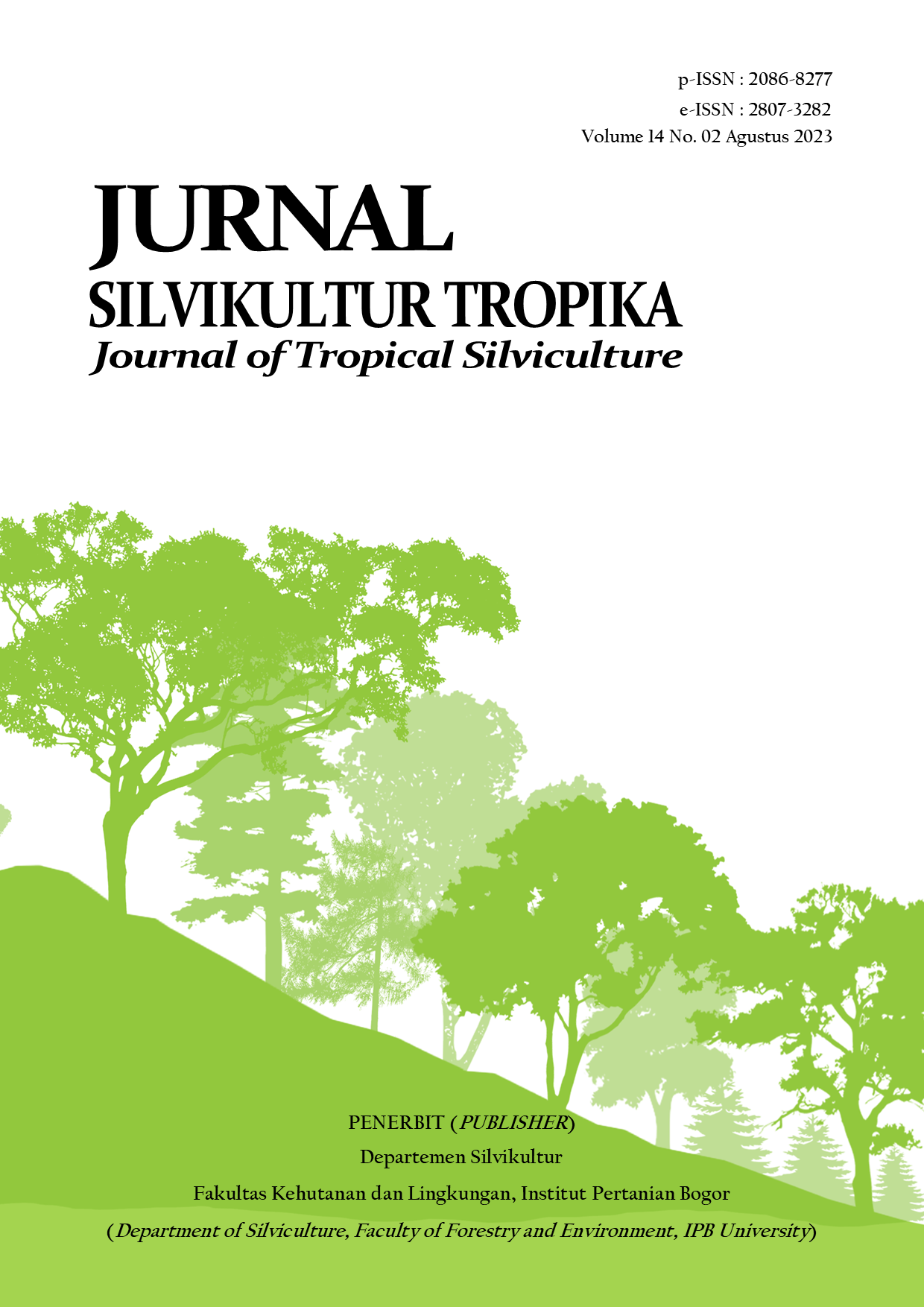Distribusi Ruang Vertikal Burung di Hutan UB Forest Malang Jawa Timur
Abstract
The sustainability of birds is also influenced by the dynamics that occur in nature. Conditions like this can be studied by looking at various patterns and habits such as distribution patterns, activities, and other habits. In a habitat type, the same species can fill different vertical spaces. This is also related to the components that support bird life, starting from shelter, cover, feed, and other habitat components. UB Forest as a bird habitat is managed by Universitas Brawijaya. There is a conservation program in its management to maintain the sustainability of the resources in it. The physical form of UB Forest has various Forest strata, so that the vertical distribution of birds can determine the sustainability and health of the Forest. This study aims to analyse the vertical use of space for birds in UB Forest to see the proportion of bird preservation in the Forest area. The research was conducted in three types of habitats, namely Coffee Pine, Coffee Mahogany, and Natural Forest. The results of the observations found 59 species of birds from 27 families spread over the three types of habitats. Then the vertical distribution of the most common bird species is in strata B and C. The value of bird conservation when viewed from the conservation status, UB Forest's Forest has a fairly high value. There are two species that have NT status, one VU, and one EN based on the IUCN red list. Six are included in CITES Appendix II, and seven species are protected by the government. The uniqueness possessed by birds can be offered as one of the ecotourism packages.
Keywords: Forest birds, insectivore, ecotourism, sustainable management
Downloads
Copyright (c) 2023 Mokhamad Asyief Khasan Budiman, Yulia Nuraini, Agus Nurrofik, Erekso Hadiwijoyo

This work is licensed under a Creative Commons Attribution 4.0 International License.










